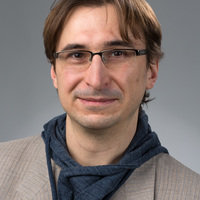The thesis investigates the development and mobility patterns of scholars active at the universities in Cisleithania during the period 1848-1918. Applying the analytical tools of cultural geography, it demonstrates how the production of... more
The thesis investigates the development and mobility patterns of scholars active at the universities in Cisleithania during the period 1848-1918. Applying the analytical tools of cultural geography, it demonstrates how the production of academic space through academic mobility changed over time, establishing language-defined systems with their own rules and hierarchies. From the late eighteenth century, the question of the language of scholarship increasingly influenced academic communities, especially in the Central Europe. In the Habsburg Empire several languages held claims to being developed enough for serving as the mediums of scientific instruction – yet, the privileged role of German language was sustained for political reasons. After 1848, this tension influenced scientific policy, as universities with different languages of instruction were allowed in Galicia and then in Bohemia. Concurrently, academic mobility increasingly extended beyond the boundaries of the Habsburg Monarchy, and non-Habsburg scholars were appointed to chairs from 1848, comprising at times more than a quarter of the lecturers at individual universities. Especially at germanophone academies and in Galicia, the number of foreign scholars rose, illustrating the dominance of language affiliations over state dependence. Galician universities in particular, became centers for education for Polish and Ruthenian speakers from three empires, striving to gather the best polonophone scholars as well. Germanophone universities were partially included in the network of the German Confederation/Empire, but later in the century turned more to their own offspring and developed a hierarchical system with discernible Habsburg-bound career patterns. In the case of Jewish scholars, this pattern was disrupted due to anti-Semitic hostility at the provincial academies; especially in the politicized disciplines, philosophy and history, the ministry also favored the appointments of Catholic scholars. Despite the turn to a fostering of their own culturally defined scholarship, Habsburg universities remained entangled by common frontiers, which proved highly influential on personal and institutional levels.
